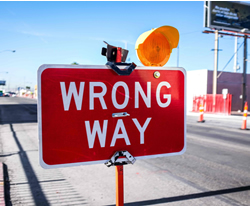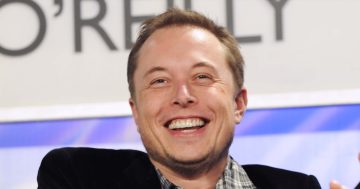Eric Limer* says restrictive copyright rules under consideration in Europe could have a huge, negative effect on the freedom and openness of the internet.

Photo: NeONBRAND
One proposed new law for the European Union (EU) would force companies to pay for linking to publications such as news sites.
Another would force big platforms like Facebook and Google to police images and video that users upload for copyright violations.
Both sound good in theory, but could lead to unintended consequences that give big tech companies even more control over the internet.
Many open internet advocates are against them.
Members of the European Parliament (EP) have voted to advance legislation that could have a disastrous effect on the internet as we know it.
Changes to the EU’s Directive on Copyright in the Digital Single Market, which were approved by Committee members last week, contain an article that would force platforms to pay a “link tax” to publishers whose content is linked on their services, and another that would force publishers to install automated filters to prevent the uploading of copyrighted material.
Article 11, the “link tax”, grows out of experiments in Germany and Spain that are ostensibly designed to give local publishers a cut of the profit that giant American companies like Google and Facebook make by advertising against the links and snippets of text their users post.
The rule has had disastrous and counterproductive effects where it has been implemented.
In Spain, the legislation caused Google News to pull out of the country entirely.
Further studies show that the law caused a $10 million loss to the industry, primarily shouldered by smaller publishers that relied on the tech giants for distribution.
This new incarnation, which would cover all of the EU’s 28 member countries (with specific details of implementation left up to each individual country), would make it more difficult for publishers to simply pull out of Europe entirely, but likely not without additional collateral damage.
Publishers, who will take a considerable hit if they lose access to giant platforms, would have an incentive to perhaps cut some sort of deal with behemoths like Facebook or Google.
However, as writer and activist Cory Doctorow points out in an article at Motherboard, the likely cost of such compromises is almost certainly the devastation of smaller publishers and smaller platforms, neither of which will have the leverage to broker a truce or the resources to navigate the regulations.
The result?
A tightening of big tech’s stranglehold on the web.
Article 13, meanwhile, deals with horrors that have haunted the internet in the United States as well.
Much like the proposed Stop Online Piracy Act (SOPA) and PROTECT IP Act (PIPA) of 2012 in the US, the measure would require platforms to create and maintain expensive, expansive systems to monitor uploaded images and video for potential copyright violations.
That is to say, mandatory automated meme police.
It’s also similar to YouTube’s existing ContentID system, famous for its perpetual overzealousness, which bad actors have been known to weaponise by submitting false copyright claims to exploit the system’s bias towards ostensible copyright holders.
Open internet advocates like World Wide Web inventor Tim Berners-Lee and co-founder of Wikipedia Jimmy Wales have signed an open letter begging EU regulators to reconsider, saying: “The damage that this may do to the free and open Internet as we know it is hard to predict, but in our opinions could be substantial.”
“The cost of putting in place the necessary automatic filtering technologies will be expensive and burdensome, and yet those technologies have still not developed to a point where their reliability can be guaranteed.”
“Indeed, if Article 13 had been in place when Internet’s core protocols and applications were developed, it is unlikely that it would exist today as we know it.”
Nevertheless, both articles were accepted last week by the European Parliament’s Committee on Legal Affairs, by votes of 15 to 10 and 13 to 12, respectively.
That doesn’t mean they’ll necessarily make their way into law, though.
A plenary can force the matter to a vote by all 751 of the EU Parliament’s members.
All this comes after another bit of wide-reaching EU regulation in the form of the General Data Protection Regulation (GDPR) went into effect in May, forcing data-hungry companies like Facebook to offer up new privacy controls.
But where GDPR caused corporate headaches in a way that may shake up the internet and leave it a safer place, these copyright restrictions are all but destined to make the web less open and less free, consolidating power among the powerful.
* Eric Limer is Deputy Editor of Popular Mechanics in New York. He tweets at @ericlimer and his website is ericlimer.com.
This article first appeared at www.popularmechanics.com.











